Additional Voluntary Contributions (AVCs) After Death
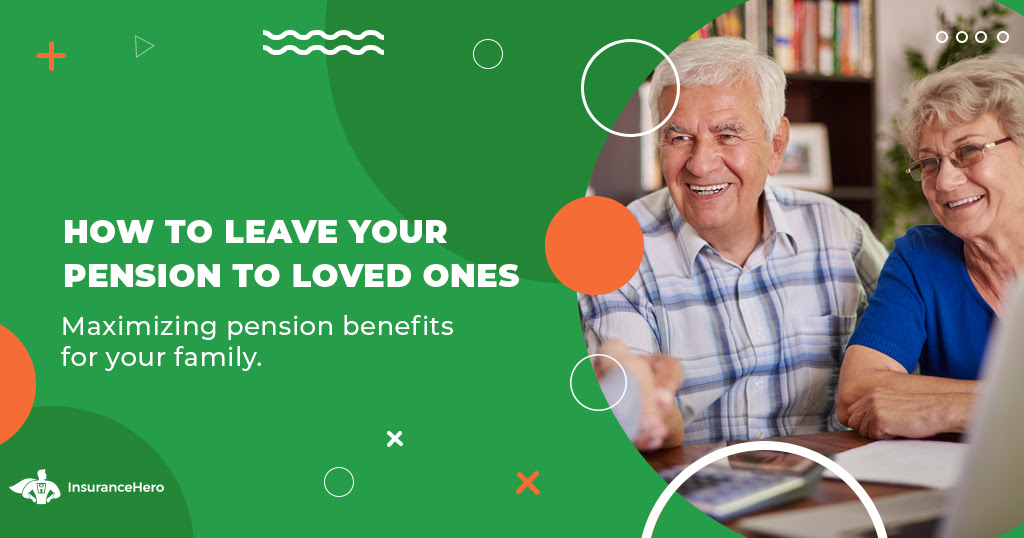
Throughout your working life, you typically build up eligibility for a pension.
While pension rules change occasionally, most people in the UK are eligible for at least a state pension, if not a workplace pension.
Tracking and managing your pension and figuring out what happens to any leftover money when you die can be complex.
If you’ve built up a pension over years of working life, it’s reasonable to want that pension to benefit your family. If you pass before your pension has run out, what happens to the remaining funds?
What is an AVC (additional voluntary contribution), and what does it have to do with pensions?
What Happens to a Pension When You Pass?
The first and most important question you likely have is this: what happens to a pension when the pensioner passes?
It depends on the kind of pension scheme you have and any specific terms relevant to your situation. First, let’s start by talking about workplace and private pensions.
One critical piece of information is whether you have a defined benefit pension or a defined contribution pension.
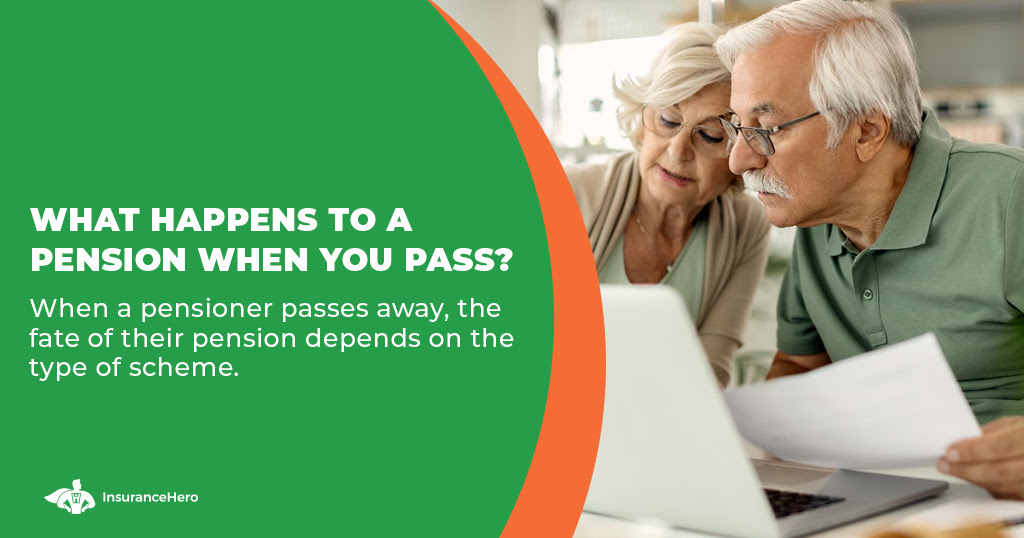
A defined benefit pension is a pension that pays out a retirement income when you’re eligible, based on the salary you made and the length of your employment.
The more you made and the longer you were employed, the greater your benefits are defined to be. These come in different forms, including one that uses your final salary and one that averages out your salary throughout your career.
Defined benefit pensions are slowly being phased out and are mostly only found in older workplace pension schemes. You may have one, or you may have a newer type of pension scheme.
What happens to a defined benefit pension when you pass?
That depends on the terms of the pension itself. Typically, the pension will shift to paying your eligible dependents, often a spouse or children who are young and still in full-time education.
The amount they receive will be some percentage of the amount you were getting, and if it’s small enough, your dependents may be able to request a lump sum payment instead.
Defined contribution pensions work in a different way. These are similar to many traditional investments. As you work, you and/or your employer contribute to a pension pot. This pot grows throughout your working life, and when you retire, the amount paid into it is the base fund that pays you your retirement income.
When you pass, what happens to your pension depends on whether or not you had taken income from it and how old you were. If no money had been taken from the pension, your dependents can often get a lump sum, set up an annuity, or even set up their own drawdown from it.
On the other hand, if you had been taking an income from your pension, the remainder can be used for an annuity, a lump sum, or a drawdown, just with a lower sum total.
In the most common scenario, where you’ve been drawing down an income from your pension when you pass, one of three things will likely happen:
- If you’re under 75 when you pass, the drawdown you would have had can be calculated as a lump sum and passed to your dependents tax-free.
- Regardless of age, your dependents can choose to keep receiving standard drawdown payments. If you were under 75, there’s no tax on these, but if you were over 75, they’d have to consider it income and pay income tax on it.
- Similarly, your dependents can use the pension to purchase an annuity. This has the same tax/no-tax divide at 75 as above.
If you had already used your pension to purchase an annuity, the annuity payments would stop at your death unless you had specifications in your contract to keep them paying to your dependents or you were within a value protection window.
This is why it’s common to set up an annuity under a joint life basis, so it will continue to send some proportion of money to your dependents when you pass rather than cutting off entirely.

Decisions you make about this can be put into your will, though some decisions can’t be made before your passing and are thus part of your estate management and the responsibility of your dependents.
All of the above is the sort of complexity you need to sort through with private pensions, State Earnings-Related Pension Scheme (SERPS) and workplace pensions.
What about your state pension?
Your state pension is a lot simpler. There’s a complex process to determine whether or not your spouse or civil partner can inherit some of your state pension based on your individual built-up pensions and age.
The government provides a tool to determine if any of your pension will carry over to your spouse.
If you have no spouse or civil partner, that’s it; your state pension can’t carry over to other dependents. When you die, your state pension – if it doesn’t have some carry-over to your spouse – cuts off.
What is an AVC Scheme?
So what about the AVC? There’s always more to the story, isn’t there?
AVC schemes come in two forms: AVC and FSAVC. These are Additional Voluntary Contributions and Free-Standing Additional Voluntary Contributions, respectively.
The core concept of these schemes is simple. You voluntarily choose to pay more of your income now into your pension in exchange for greater benefits in retirement later. As always, though, the devil is in the details.
First of all, these schemes apply to workplace pensions but not state pensions. State pensions, you’ll find, are generally much more straightforward, if more restrictive and often less valuable than private pensions.
Most of the information in this article focuses on workplace pensions for that reason.
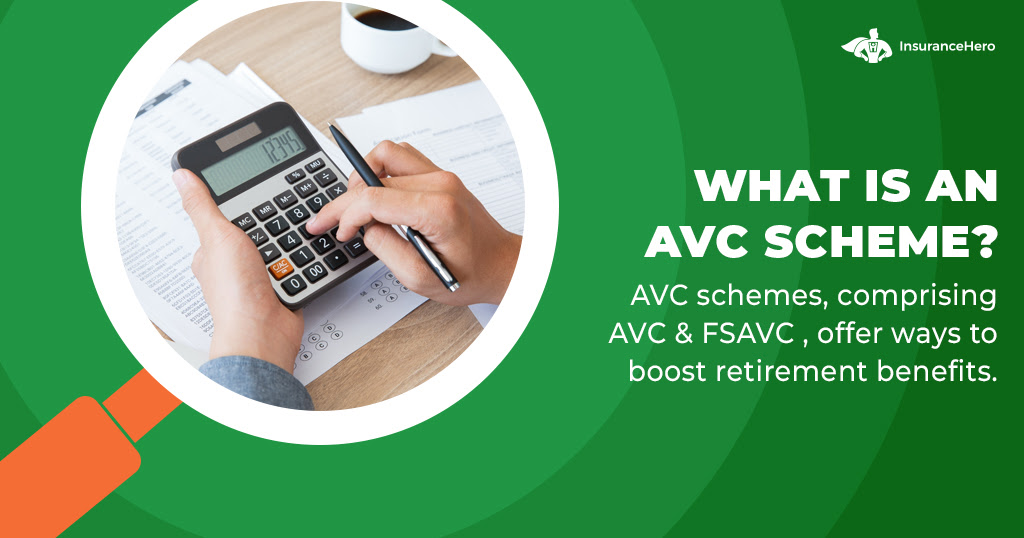
AVCs allow contributors of workplace pension schemes to increase contributions above and beyond the standard minimum.
The employer generally sets the terms of the scheme, and the AVC is not directly tied to the workplace pension but is secondary to it.
AVCs also come in both defined benefit and defined contribution forms.
AVCs can take different forms as well:
- Added Years. The Added Years form of AVC works with a defined contribution pension. The additional funds you pay increase the “years contributed” factor of your pension, essentially allowing you to accelerate the higher payment levels from a pension you otherwise weren’t employed long enough to have earned.
- Added Pension. This form of AVC is essentially a way to purchase higher levels of benefits once your pension starts paying out. For example, an additional contribution of £15,000 might earn you an extra £1,000 per year for the whole of your pension. If you retire early and expect more than 15 years of pension payments, that’s very beneficial.
- Lump Sum. Some AVCs are designed such that you pay into them to build up a single large payment that, when you reach retirement age, is paid out in a tax-free lump sum rather than an annuity or other routine payment. This allows you to have a large lump sum and a regular pension without sacrificing one.
- Enhanced Accrual. Typically, as you work and contribute to a pension, you start small with a fraction of your income as your pension earnings. The more you work, the more this benefit accrues, and the greater the percentage of your earnings you’ll receive when your pension pays out. An AVC can speed up this accrual, putting you ahead of the curve.
- Early Retirement Offset. The earlier you choose to retire, the longer your benefits need to last. Many schemes have a minimum age you need to reach before they pay out, or if you choose to retire earlier, you will receive fewer benefits or will pay a penalty. The AVC can be put towards more years of benefits, earlier rather than later, so you can retire sooner.
FSAVCs are a little different. With a normal AVC, your contributions are taken directly from your paycheque before you receive the funds.
A free-standing AVC is an AVC you set up, much like any investment account, and pay it out of your pocket. The funds are invested to grow over time and give you a paydown once you retire.
The main benefit of an FSAVC over a standard AVC is that you’re more in control of it and can start taking payments as early as age 55, as opposed to something like the state pension, which makes you wait until 66.
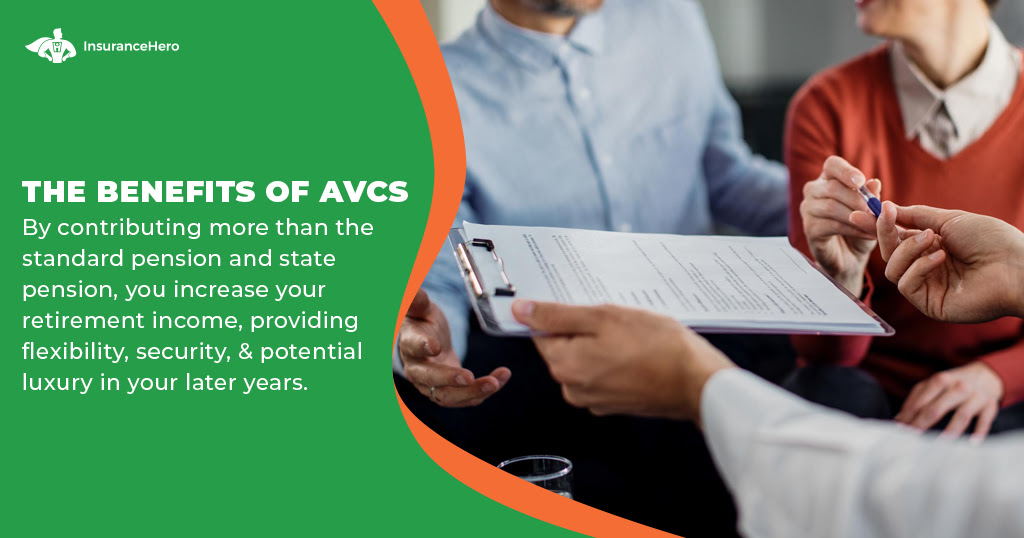
The Benefits of AVCs
AVCs offer numerous valuable benefits as you plan for retirement and the years to come, including those after your death.
The biggest benefit is simple: the more you pay now, above and beyond your normal pension and state pension, the more income you’ll have in retirement.
That means your later years will be more flexible, secure, and luxurious than if you were limited to state and standard pensions.
Flexibility is also a strong benefit. You can guide and change your additional contributions over time; if you face financial hardship or unemployment, you can drop your contributions until you’re more stable.
Conversely, if you flush with cash when times are good, you can put more away to prepare for later.
Putting money into an AVC pension instead of taking it as part of your pay also has tax benefits.
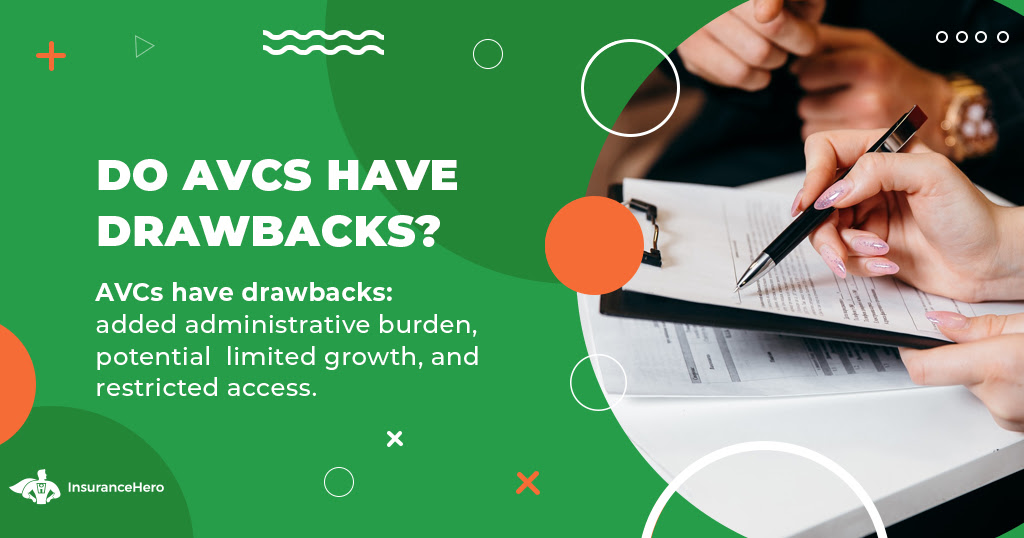
Do AVCs Have Drawbacks?
The primary drawbacks of AVCs come in three forms.
First, you will have an added administrative burden as you have to manage the additional contributions you make each month.
Without proactive management, you can lose opportunities by failing to adjust the number upwards or cause yourself undue hardship by failing to drop it back down.
Second, AVCs are additional pensions, which means stability at the potential cost of growth. If you have a normal pension funded to a standard level, you may be able to benefit more from putting that money into other investments in the short- or medium-term, which could be higher risk but higher reward.
Finally, AVCs are locked into the employer pension management, and you’re generally unable to access them without steep penalties.
You could use that money for other purposes, such as improving your current situation, improving your health to better take advantage of later pension payments, or even obtaining life insurance coverage.
Life insurance cover is a bit one. Pensions, no matter how good they are, are going to have a limitation on how much and how well they will pay to your dependents and loved ones when you pass. The money you pay in via an AVC can benefit you, but when you pass, some portion of it likely won’t carry over or pass on to your estate.
If you put some money towards life insurance coverage instead, you could end up in an even better situation for your dependents.
Life insurance coverage isn’t typically costly, and there’s the gamble over whether or not you will pass within your term.
Still, the benefits, if they occur, are significant if you want to provide the best possible level of financial security for your family after your death.
Our advice? Consider life insurance coverage and see how it changes your decision-making. If you spend a few seconds filling out our free quote form, you can have life insurance quotes from all of the best providers in the UK delivered to you in minutes.
From there, you can make your cost-benefit analysis and decide where your money can provide the best possible returns for your retirement and your family’s financial security when you pass.
While an AVC isn’t a bad option, a slightly lower AVC alongside good life insurance can be much better.
Steve Case is a seasoned professional in the UK financial services and insurance industry, with over twenty years of experience. At Insurance Hero, Steve is known for his ability to simplify complex insurance topics, making them accessible to a broad audience. His focus on clear, practical advice and customer service excellence has established him as a respected leader in the field.


